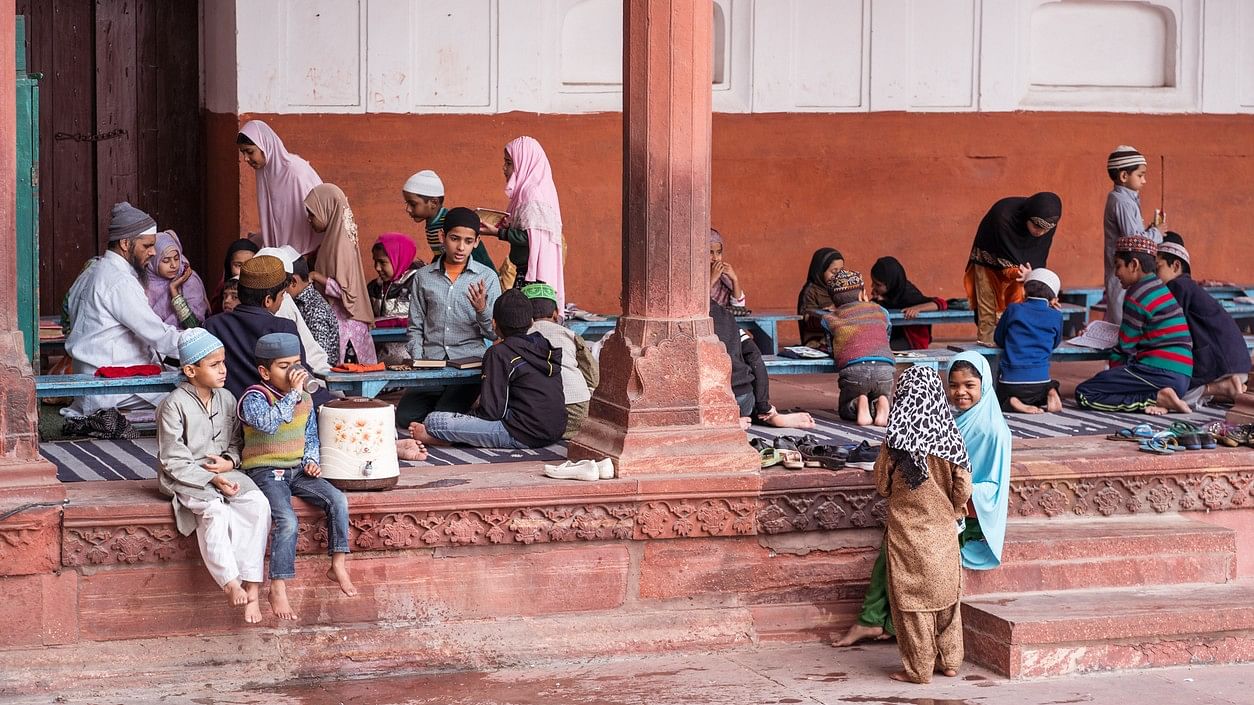
A madrasa. Image for representational purposes.
Credit: iStock Photo
New Delhi: The Supreme Court on Tuesday said religious instructions are never an anathema in the country, "as it is available not just for the Muslims, but for Hindus, Sikhs, Christians, etc. and the country ought to be a melting pot of cultures, civilizations, and religions."
"Let us preserve it that way. In fact, the answer to ghettoisation is to allow people to come to the mainstream and to allow them to come together. Otherwise, what we essentially would be doing is to keep them in silos," a bench of Chief Justice of India D Y Chandrachud and Justices J B Pardiwala and Manoj Misra said.
The court reserved its judgment on a plea by Anjum Kadari and others against the Allahabad High Court's judgment of March 22, 2024, which struck down the UP Madrasas Act, 2004 as "unconstitutional and violative of the principle of secularism".
Additional Solicitor General K M Nataraj, appearing for the UP government, which filed the appeal, contended that the high court should have only struck down the provisions which are violative of the fundamental rights instead of nullifying the entire regulatory framework.
During the hearing, the court observed that the students of madrasas should receive quality education but "to throw out the Act is like throwing out the baby with the bathwater".
The bench said that secularism means to live and let live as senior advocate Mukul Rohatgi, appearing for the petitioner, contended that the judgment had the effect of depriving students of their education and hundreds of them cannot be forced out "which is against secularism".
The bench observed that striking down the entire Act would mean that the madrasas would remain unregulated.
"Is it not in our national interest that the madrasas are regulated. One cannot wish away 700 years of history like this. Suppose we uphold the HC order, the parents of children will still send them to madrasa, it will just be a silo without any legislative intervention," the bench said.
The court said the Act gave rule-making powers to the State to lay down standards.
"Look at the salutary purpose of the Act. Is it not in national interest that you regulate the madrasas? Even if we deem them unconstitutional, parents will not stop sending the children there sans regulation. Let us be clear, States can regulate, and it is a policy statement in the Act," the bench said.
To an argument that madrasas were not helping in mainstreaming the children, the bench pointed out that religious instruction is not unique to Muslims. "There are institutes training Buddhist monks, as what is being argued in the context of Islam will apply across all religions in India, right from Ved Pathshalas to institutions training Buddhist monks, Jain priests, etc."
As the NCPCR counsel contended that the child rights panel wanted religious instructions should not supplement mainstream education, the bench asked if it has issued a directive across communities that the children must be taught Science, Maths, etc.
"Why are you only concerned with madrasas? We would like to know if you have dealt with other institutes. Has NCPCR been even-handed in its treatment of all communities?" the bench asked the counsel.
